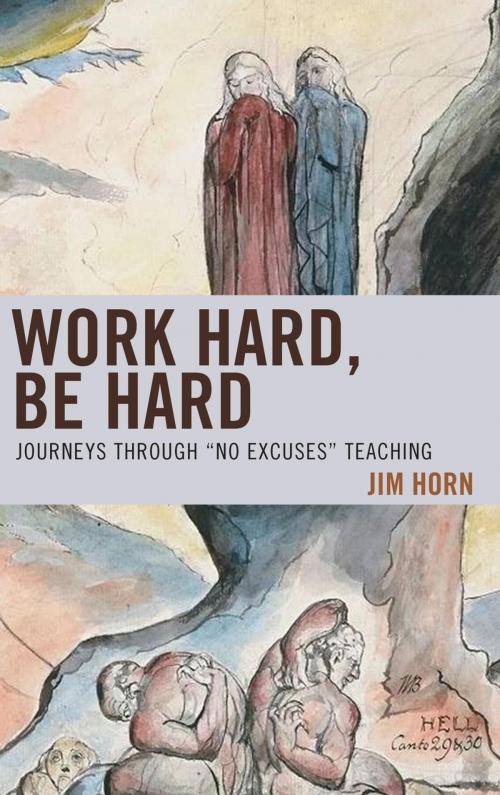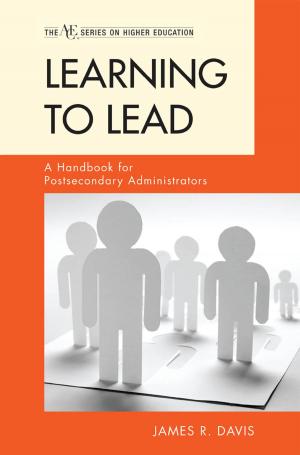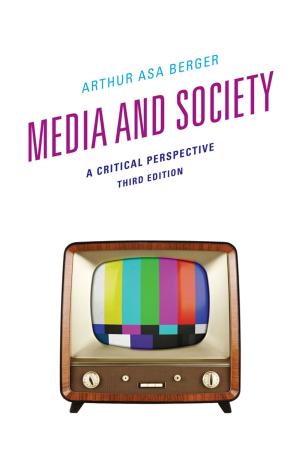Work Hard, Be Hard
Journeys Through "No Excuses" Teaching
Nonfiction, Reference & Language, Education & Teaching, Educational Theory, Educational Reform, Teaching, Teaching Methods| Author: | Jim Horn | ISBN: | 9781475825817 |
| Publisher: | Rowman & Littlefield Publishers | Publication: | February 18, 2016 |
| Imprint: | Rowman & Littlefield Publishers | Language: | English |
| Author: | Jim Horn |
| ISBN: | 9781475825817 |
| Publisher: | Rowman & Littlefield Publishers |
| Publication: | February 18, 2016 |
| Imprint: | Rowman & Littlefield Publishers |
| Language: | English |
This book explores the ideological contexts for the creation and spread of “No Excuses” charter schools. In so doing, Work Hard, Be Hard focuses closely on the Knowledge Is Power Program (KIPP) charter school chain as the most prominent exemplar for total compliance “No Excuses” schooling. By way of in-depth interviews, former teachers offer accounts of their “No Excuses” teaching experiences that have not been heard before and that are not likely to be forgotten soon.
Work Hard, Be Hard also examines the KIPP organization as a manifestation of modern education reform exemplified in the convergence of neoliberal politics and the aggressive activities of the business and philanthropic communities. As an important corollary to the total compliance charter phenomenon, the book explores, too, the role of Teach for America in supplying the needed manpower and values components required to deal with very high levels of teacher attrition in these schools.
Work Hard, Be Hard goes beyond accounts offered in news features, articles, and interviews that focus on “No Excuses” charters’ high test scores and expanded college opportunities for economically disadvantaged children. In short, the book offers a naturalistic antidote to the high profile gloss that mass media provides for “No Excuses” schooling.
Work Hard, Be Hard examines new developments in “No Excuses” schooling that focus on psychological interventions aimed to alter children’s neurological and behavioral schemas in order to affect socio-cultural values and behaviors. Fraught with potential for abuse and misapplication by minimally trained teachers, these cult-like practices are examined and contrasted with more humane strategies that hope to reawaken the virtues of teaching and learning within the expansive confines of the sciences and arts of a truly humane pedagogy.
This book will:
- Function as a common reader for parent groups or individuals interested in understanding the inner workings and impacts of “no excuses” charter schools;
- Serve as a text for education students for courses in pedagogy, social and cultural foundations of education, education policy, and politics of education;
- Provide deeper appreciation of social, political, and economic issues and incentives associated with total compliance charter schools;
- Help to ameliorate an absence of teacher perspectives on teaching in “No Excuses” charter schools;
- Assist the general public in understanding the ideological and economic agendas that drive support of total compliance charter schools;
- Help to educate policy makers and their staffs in cultural and economic facets of corporate education reform that are relevant to political decisions regarding education policy.
This book explores the ideological contexts for the creation and spread of “No Excuses” charter schools. In so doing, Work Hard, Be Hard focuses closely on the Knowledge Is Power Program (KIPP) charter school chain as the most prominent exemplar for total compliance “No Excuses” schooling. By way of in-depth interviews, former teachers offer accounts of their “No Excuses” teaching experiences that have not been heard before and that are not likely to be forgotten soon.
Work Hard, Be Hard also examines the KIPP organization as a manifestation of modern education reform exemplified in the convergence of neoliberal politics and the aggressive activities of the business and philanthropic communities. As an important corollary to the total compliance charter phenomenon, the book explores, too, the role of Teach for America in supplying the needed manpower and values components required to deal with very high levels of teacher attrition in these schools.
Work Hard, Be Hard goes beyond accounts offered in news features, articles, and interviews that focus on “No Excuses” charters’ high test scores and expanded college opportunities for economically disadvantaged children. In short, the book offers a naturalistic antidote to the high profile gloss that mass media provides for “No Excuses” schooling.
Work Hard, Be Hard examines new developments in “No Excuses” schooling that focus on psychological interventions aimed to alter children’s neurological and behavioral schemas in order to affect socio-cultural values and behaviors. Fraught with potential for abuse and misapplication by minimally trained teachers, these cult-like practices are examined and contrasted with more humane strategies that hope to reawaken the virtues of teaching and learning within the expansive confines of the sciences and arts of a truly humane pedagogy.
This book will:
- Function as a common reader for parent groups or individuals interested in understanding the inner workings and impacts of “no excuses” charter schools;
- Serve as a text for education students for courses in pedagogy, social and cultural foundations of education, education policy, and politics of education;
- Provide deeper appreciation of social, political, and economic issues and incentives associated with total compliance charter schools;
- Help to ameliorate an absence of teacher perspectives on teaching in “No Excuses” charter schools;
- Assist the general public in understanding the ideological and economic agendas that drive support of total compliance charter schools;
- Help to educate policy makers and their staffs in cultural and economic facets of corporate education reform that are relevant to political decisions regarding education policy.















